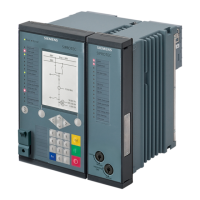Analog input module SM 331; AI 6 x TC Isolated (6ES7331‑7PE10‑0AB0)
12 A5E02398493-02, 11/2008
Parameters Range of values Default Parameter
type
Scope
● Smoothing
none
weak
medium
strong
none dynamic Channel
● External reference source
Local RTD/Remote RTD Local RTD dynamic Channel
● Temperature Coefficient
0.003850 (IPTS-68)
0.003850 (ITS-90)
0.003916
0.003902
0.003920
0.003910 (GOST)
0.003850
(IPTS-68)
dynamic Module
Process interrupt trigger
• High limit
• Low limit
32511 to -32512
from - 32512 to 32511
32767
-32768
dynamic Channel
Unused channels
It is recommended that the "measurement type" parameter for unused channels be set to the "deactivated" value. Otherwise,
unused channels should be shorted at the terminal connector.
Effect of this measure:
● Measurement errors at the channels are avoided
● Diagnostics messages from the unused channel are suppressed
Using smoothing
Smoothed analog values provide a reliable analog signal for further processing.
It is useful to smooth the analog values with slow variations of measured values, for example, when measuring temperature.
Smoothing principle
The measured values are smoothed by digital filtering. Smoothing is accomplished by the module calculating mean values,
derived from a defined number of converted (digitized) analog values.
The user can set up to four smoothing levels, namely none, weak, medium, and strong. The grade determines the number of
analog signals used for averaging.
A higher smoothing provides a more reliable analog value, and prolongs the time it takes to apply a smoothed analog signal
following a step response (see the example below).

